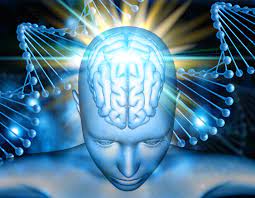Mental health is a fundamental aspect of an individual's general health. Depression is one of the most common mental illnesses, and according to the World Health Organization (WHO), it affects 5% of adults worldwide. Although the exact cause of depression is not known, it is believed to be a multifactorial disease involving social, psychological, and biological factors.
As for biological factors, much research has been done on the role of genetics in depression. The question of whether depression is inherited from parents to children is frequent, and although studies to date estimate that the heritability of the disease is 30-40%, its high polygenic nature has made its study difficult. More than 260 genes involved in neurotransmission and response to stimuli have been associated, suggesting that there is a genetic basis for depression.
The relationship between genetics and mental health isn't just limited to depression. Other mental disorders, such as schizophrenia and bipolar disorder, have been investigated and found to also have a genetic basis.
The identification of genes that are involved in depression and other mental disorders is an active and constantly evolving field of research. Genetics is only part of the puzzle, and the interaction of genes with the environment also plays an important role in the development of these disorders.
Advances in DNA sequencing technology and big data analysis have allowed researchers to study genetic patterns associated with mental health. Identifying these patterns can help doctors identify people at risk of developing depression and other mental disorders, and can also help develop new, personalized treatments.
The combined use of certain drugs with psychotherapy can be highly effective in treating depression. In addition, these antidepressant drugs have a very well characterized metabolism, so knowing, through pharmacogenetics, the individual metabolizing profile can be very useful when choosing the best drug and trying to reduce the 75% of people with mental illnesses who do not receive proper treatment.
Pharmacogenetics is a branch of genetics that focuses on how genes affect a person's response to drugs. Each person has a unique set of genes that can influence how their body processes and responds to drugs. Pharmacogenetics can help doctors identify which drugs are most effective for a particular person and avoid unwanted side effects.
An example of the application of pharmacogenetics in the treatment of depression is the use of escitalopram, a common antidepressant.















